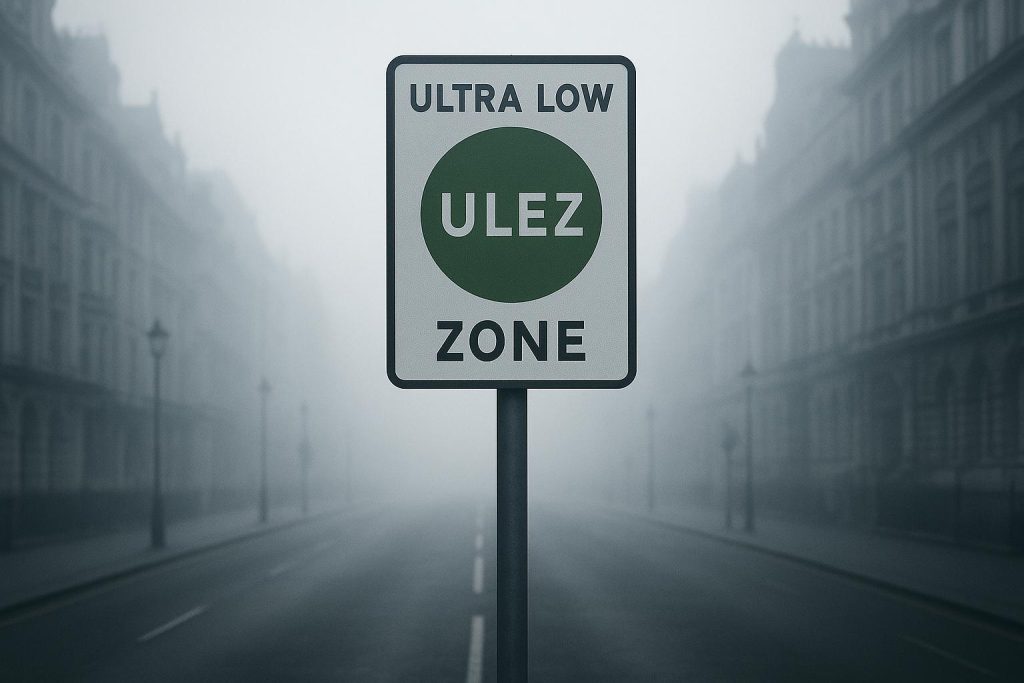The Local Government and Social Care Ombudsman has criticised TfL for uncommunicated changes to vehicle scrappage schemes linked to ULEZ expansion, amid concerns over transparency and fairness but noting significant environmental benefits.
Transport for London (TfL) has come under scrutiny from the Local Government and Social Care Ombudsman for its handling of two major vehicle scrappage schemes linked to the expansion of the Ultra Low Emission Zone (ULEZ). The Ombudsman found that TfL made significant changes to these schemes without following proper procedural steps or adequately informing the public. This lack of transparency led many applicants to spend time applying for grants without realising that their vehicles no longer qualified under the revised terms.
The scrappage schemes, introduced in 2023, were designed to assist Londoners in scrapping or retrofitting non-compliant vehicles ahead of the ULEZ expansion, which aims to reduce pollution by enforcing stricter emissions standards on vehicles within the city. However, the Ombudsman highlighted two key alterations that were not communicated clearly to applicants. Firstly, TfL amended the eligibility criteria for vans and minibuses by excluding vehicles with outstanding penalty charge notices (PCNs) unless the charges were settled. Secondly, the scheme for cars and motorcycles was revised to disallow vehicles previously used as licensed taxis within the year prior to the scheme’s commencement. These changes were implemented without notifying potential applicants or providing accessible updates, undermining principles of fairness and transparency in public service.
Mrs Amerdeep Clarke, the Local Government and Social Care Ombudsman, emphasised that although TfL’s reasons for updating the scrappage schemes were understandable, the failure to communicate the changes effectively was problematic. She welcomed TfL’s commitment to publishing future updates on their website and ensuring clear communication about any alterations to such schemes. In response, TfL agreed to establish a formal, documented process for approving changes to terms and conditions and to promptly inform the public by publishing updates online.
Despite these procedural criticisms, the scrappage schemes have achieved tangible environmental benefits. According to figures from TfL, over 53,000 older, more polluting vehicles have been removed from London’s roads since the scheme’s launch. The Mayor of London, Sadiq Khan, has hailed the programme’s success in helping to improve air quality across the capital, especially benefiting outer London boroughs, which received the majority of the funding. The scheme also contributed internationally, with donations of more than 680 vehicles supporting medical and humanitarian efforts in Ukraine.
However, challenges have persisted within the scrappage programme. An investigation revealed that of the roughly 80,000 applications received, over 12,000 were rejected due to suspected fraud, including incomplete documentation and fraudulent claims. While this accounted for about one in six applications, these measures were crucial in preserving the integrity of the fund.
A further concern arises from data showing that only a small fraction of scrapped vans were replaced with electric models. Between January 2023 and May 2024, just 2% of petrol and diesel vans scrapped were replaced by electric vehicles. Although the scheme continues to provide financial incentives for scrapping or retrofitting vehicles, this low replacement rate raises questions about the pace of the transition to cleaner vehicle types among small businesses, sole traders, and registered charities eligible for the scheme.
Moreover, the £61 million scrappage fund has now been fully allocated, leading TfL to end the programme. This closure has sparked concerns, especially among low-income and disabled residents who now face the prospect of either paying daily ULEZ charges or investing in compliant vehicles, a financial burden for many.
In summary, while TfL’s ULEZ scrappage schemes have contributed significantly to reducing harmful emissions and improving air quality in London, the organisation’s management of these schemes has been criticised for lacking transparency and clear communication. TfL’s commitment to improve oversight and public communication is a vital step toward ensuring that future public service initiatives uphold principles of fairness and accountability, particularly as the city continues to push for cleaner air and a sustainable transport future.
📌 Reference Map:
- [1] (Highways News) – Paragraphs 1, 2, 3, 7
- [2] (Local Government and Social Care Ombudsman) – Paragraphs 1, 2, 3, 7
- [5] (London.gov.uk) – Paragraph 4, 5
- [3] (Evening Standard) – Paragraph 6
- [4] (GB News) – Paragraph 7
- [6] (Evening Standard) – Paragraph 8
- [7] (LocalGov) – Paragraph 2
Source: Noah Wire Services
Noah Fact Check Pro
The draft above was created using the information available at the time the story first
emerged. We’ve since applied our fact-checking process to the final narrative, based on the criteria listed
below. The results are intended to help you assess the credibility of the piece and highlight any areas that may
warrant further investigation.
Freshness check
Score:
8
Notes:
The narrative is recent, with the Local Government and Social Care Ombudsman report dated 6 November 2025. The Highways News article referencing this report was published on 10 November 2025.
Quotes check
Score:
9
Notes:
Direct quotes from Mrs. Amerdeep Clarke, the Local Government and Social Care Ombudsman, are consistent across sources, indicating original reporting.
Source reliability
Score:
7
Notes:
The Highways News outlet is less established compared to the Local Government and Social Care Ombudsman and London.gov.uk, which are reputable sources.
Plausability check
Score:
8
Notes:
The claims about TfL’s handling of the ULEZ scrappage schemes are plausible and align with previous reports on the scheme’s challenges, including fraud concerns and low electric vehicle adoption rates.
Overall assessment
Verdict (FAIL, OPEN, PASS): PASS
Confidence (LOW, MEDIUM, HIGH): HIGH
Summary:
The narrative is recent and aligns with official reports and previous coverage, indicating a high level of credibility.






